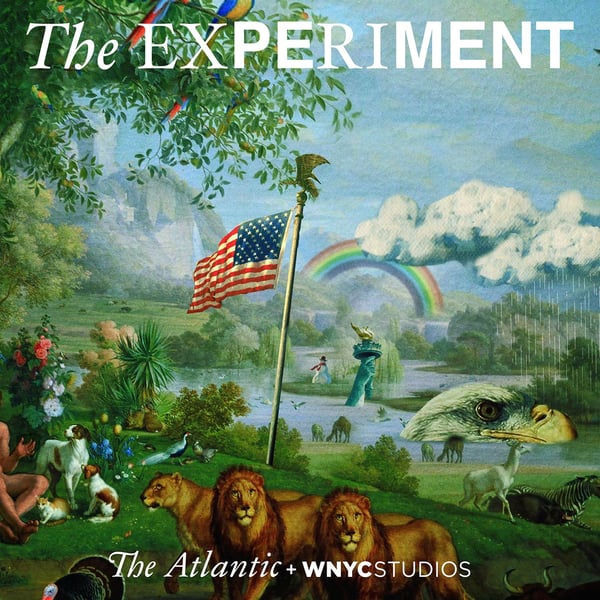An Engineer Tries to Build His Way Out of Tragedy
The Experiment
The Atlantic and WNYC Studios
4.5 • 2.8K Ratings
🗓️ 17 March 2022
⏱️ 28 minutes
🧾️ Download transcript
Summary
James Sulzer has always loved building things. As a rehabilitation engineer, he spent years creating devices that he hoped would help patients recover from serious brain trauma such as strokes. And he believed strongly in the potential of rehab technology—that with the right robot, he could relieve a whole array of brain injuries.
But then, one spring day in 2020, there was a horrible accident. And suddenly James had to apply everything he knew about science and rehabilitation to help fix his own family. The Atlantic senior editor Daniel Engber spent months talking to James, following him as he used his scientific knowledge to try to find meaning in tragedy.
Further reading: “A Peer-Reviewed Portrait of Suffering”
A transcript of this episode is available.
Apply for The Experiment’s summer internship. Applications will be accepted through March 25, 2022.
Be part of The Experiment. Use the hashtag #TheExperimentPodcast, or write to us at [email protected].
This episode was produced by Peter Bresnan with help from Julia Longoria and Alyssa Edes. Editing by Emily Botein. Reporting by Daniel Engber.
Fact-check by Yvonne Rolzhausen. Sound design by Joe Plourde. Transcription by Caleb Codding.
Transcript
Click on a timestamp to play from that location
| 0:00.0 | How would you describe your beat? |
| 0:24.9 | What kinds of stories do you do? |
| 0:27.5 | I would say I'm on the science and technology beat. |
| 0:31.9 | I love stories about scientists who must confront the limits of their own science or apply |
| 0:39.6 | their science to themselves. |
| 0:42.4 | Before Dan Angberg became a senior editor at The Atlantic, he himself was trying to become |
| 0:48.5 | a neuroscientist. |
| 0:49.5 | They spent the most time studying motor control, the development of motor control in young |
| 0:54.5 | children. |
| 0:56.2 | His research was focused on kids' brains. |
| 0:59.5 | How exactly do kids make their bodies move? |
| 1:03.3 | And a really big and important concept is that of signal and noise. |
| 1:10.9 | When you decide to move your arm, your brain will send out a command in the form of electrical |
| 1:17.9 | signals, like literally traveling down the arm to the muscle. |
| 1:22.3 | For little kids who are just learning to move, there's a lot of noise that gets in the |
| 1:26.9 | way. |
| 1:27.9 | So it's not like, hey, move your arm. |
| 1:29.5 | It's like, hey, we're all on your arm. |
| 1:33.8 | Exactly. |
| 1:36.8 | You eventually left that field. |
| 1:39.2 | But then about a year ago, he got introduced to a scientist whose life had just been turned |
| 1:44.4 | upside down and whose world now revolved around finding the signal in the noise. |
... |
Please login to see the full transcript.
Disclaimer: The podcast and artwork embedded on this page are from The Atlantic and WNYC Studios, and are the property of its owner and not affiliated with or endorsed by Tapesearch.
Generated transcripts are the property of The Atlantic and WNYC Studios and are distributed freely under the Fair Use doctrine. Transcripts generated by Tapesearch are not guaranteed to be accurate.
Copyright © Tapesearch 2025.

